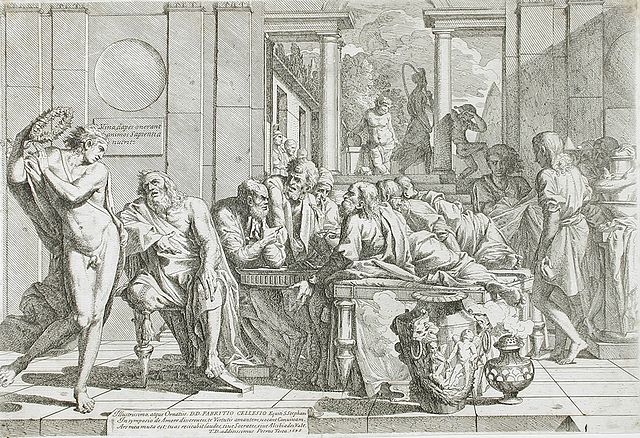
A core tenet of Platonic philosophy is that, in some manner, sensible things participate eternal forms, or ideas. Near the beginning of the fourth book of his commentary on the Parmenides, Proclus examines three different analogies, inherited from earlier teachers in the tradition which attempt to illustrate or explain participation. Proclus argues that all three capture something about participation which will, at least, be of some use to beginning students, but Proclus also warns his readers that “We must realize that none of these analogies has any scientific value, nor do all of them together adequately grasp the true nature of participation in the divine forms.” They can only take us so far, before we must leave them behind or be hopelessly misled by them.
In this session, we’ll follow Proclus in examining those three analogies, in the hopes of better understanding the challenging yet critical issue of participation. As Thomas Taylor
invites, “Let us now proceed to consider the mode in which forms or ideas are participated, following the divine Proclus as our leader in this arduous investigation.” This discussion presumes the reality of participation, asking not whether it occurs, but rather, how participation could work
These open sessions usually run twice on the same day to accommodate different time zones (see below for details on how to register). They take particular topics or passages from Plato and other writers in the tradition – these are open to anyone interested, and they attract a wide range of participants. We usually begin with a short 5 or 10 minute introduction to the subject in hand and (when appropriate) a reading of a short text: this leaves a good hour or so to discuss the ideas which arise. The UK timed one begins at 7.45pm UK time and the Americas begins at 7.30pm
Where a short text is to be discussed you will find it available for downloading a few days before the date of the session. This session will be run by David Nowakowski and you can find the paper here: How are the forms participated? three analogies…
There are no fees payable. The Trust sees the Platonic tradition as a spiritual one: not only a guide for the outer life, but especially to be treasured for its assistance in the cultivation of the inner self – the soul – for, says Plato in the Timeaus, “we are not terrestrial plants, but blossoms of heaven.” We understand the tradition to be profound and cohesive, and one that repays the long-term effort required to truly embed oneself in it. Our approach is not exclusive – we value other traditions for their insights – nor is it dogmatic or an attempt to proselytise: however we are serious in our attempts to fathom the depths of the tradition, to identify its foundations, and where its teachings seem to run counter to accepted thinking to investigate them thoroughly rather than rejecting them prematurely. Thus our point of focus is on the teachings of the tradition and most especially our own inner response to them.
By joining our studies you are making no commitment beyond that of co-operating with us in our exploration of those truths which have inspired a company of men and women most luminous in their understanding, and unsparingly generous in their teaching.
You must register separately for the two sessions- links below:
To register for the Americas time zone session (7.30pm EDT), please click here.
To register for the UK time zone (7.45pm BST) please click here.
